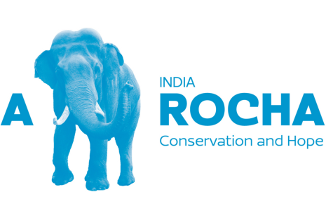Our work
The forests of Southern India are critical for the conservation of many threatened large mammals, but they have high-density human populations. Bannerghatta National Park (BNP), lying in the Eastern Ghats, protects roughly 256 sq kms and is just 22 kms south of Bangalore, India’s third most populous city. It is part of the country’s largest scrub forests and is a critical landscape as it connects to larger forest tracts in the South, providing an undisturbed link between the Eastern and Western Ghats.
BNP is mostly known for its population of Asian Elephant Elephas maximus that are in constant conflict with people. The Park has a complex shape, resulting in a notably long boundary, further increasing the interface between humans and elephants. Park-edge communities are dependent on farming for subsistence and elephants moving out of the protected area destroy crops and claim lives, leading to retaliatory persecution of the elephants and strained relations with the protected area managers. Habitat loss, quarrying and sand mining in the region further disturb the elephant habitats. A failure to mitigate conflict effectively has resulted in increased antagonism of people towards elephants and the forest officials, thus hampering elephant conservation.
For the last decade our comprehensive conservation program has focused on researching, understanding and mitigating human-elephant conflict in and around BNP in order to find effective solutions for the long term sustainability of wildlife, habitats and the people who live there.
